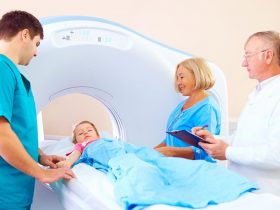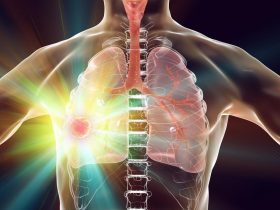Findings persist among race/ethnic groups, regardless of government or private insurance, and across facility types
MONDAY, June 20, 2022 (HealthDay News) — Area-level income and education are associated with the diagnosis of non-small cell lung cancer (NSCLC) at an advanced stage, according to a study published online June 20 in Cancer.
Anjali Gupta, from Duke University in Durham, North Carolina, and colleagues used data from the 2004 to 2016 National Cancer Database for patients aged 18 to 89 years who had been diagnosed with Stage 0 to IV NSCLC to examine the association of socioeconomic status and advanced stage at diagnosis of NSCLC by race/ethnicity and health care access measures. Data were included for 1,329,972 patients.
The researchers found that 17 and 50 percent of the non-Hispanic White and non-Hispanic Black patients, respectively, were in the lowest income quartile. The odds of an advanced-stage diagnosis were increased in association with lower area-level education and income (adjusted odds ratios, 1.12 and 1.13, respectively). These associations persisted among non-Hispanic White, non-Hispanic Black, Hispanic, and Asian patients; among those with government and private insurance; and among those treated at each facility type (community, comprehensive community, academic/research, and integrated network).
“These findings highlight the need for efforts to evaluate and address social determinants of health (specifically financial and health care access factors) as part of a comprehensive public health strategy to improve lung cancer outcomes across racial groups,” the authors write.
One author disclosed financial ties to Flatiron Health.
Copyright © 2022 HealthDay. All rights reserved.







